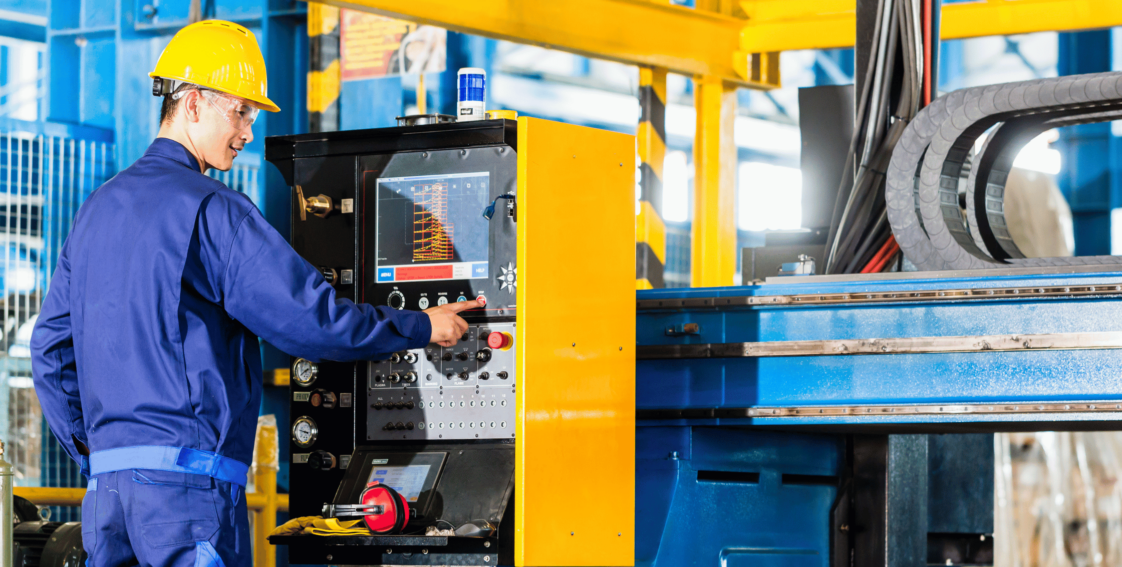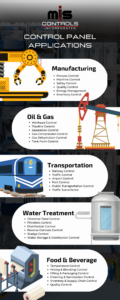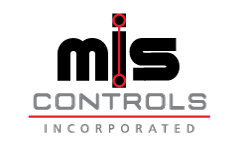
Control Panel Applications
Overview: Control Panel Applications
Control panels are essential components in many industries, including manufacturing, oil and gas, and transportation. They play a crucial role in monitoring and controlling machinery and equipment, ensuring efficient and safe operation. In this blog post, we’ll explore different control panel applications and how they are used in various industries.
Manufacturing:
Manufacturing plants use control panels to monitor and control the production process. Control panels manage various aspects of the manufacturing process, including temperature, pressure, and flow. They can also activate alarms if certain parameters are not within acceptable ranges.
- Process Control: Control panels regulate the processes involved in manufacturing products. They control variables such as temperature, pressure, and flow rates to ensure consistency and quality of the final product.
- Machine Control: Control panels manage and monitor the operation of machines, such as conveyor belts, motors, and pumps. They ensure that machines are working correctly and safely, and they provide information on the status of the machines.
- Safety Control: Control panels ensure safety in manufacturing plants. They monitor safety systems such as emergency stops, safety interlocks, and alarms. They can shut down equipment or alert operators in case of emergencies.
- Quality Control: Control panels monitor the quality of products being manufactured. They collect data on various parameters, such as temperature, pressure, and humidity, and compare them to predefined standards. They can also make adjustments to the manufacturing process to ensure the final product meets quality standards.
- Energy Management: Control panels manage energy consumption in manufacturing plants. They can monitor energy usage and make adjustments to equipment and processes to reduce energy waste and improve efficiency.
- Inventory Control: Control panels manage inventory levels in manufacturing plants. They can track the amount of raw materials and finished goods in storage. Also, they provide alerts when inventory levels are low or high.
Oil and Gas:
Oil and gas companies use control panels to monitor and control their drilling and production operations. Control panels manage various aspects of the drilling process, including the speed of the drill and the flow of mud. They can also monitor and control the production of oil and gas, including pressure and temperature.
- Wellhead Control: Control panels manage the operation of wellheads, which are the primary equipment used to extract oil and gas from underground reservoirs. They monitor the flow rate, pressure, and temperature of the oil and gas. They can shut down the wellhead if there is a problem.
- Pipeline Control: Control panels manage the flow of oil and gas through pipelines. They monitor pressure, temperature, and flow rate, and they can adjust valves and pumps to maintain the desired flow rate.
- Separation Control: Control panels separate oil, gas, and water from the production stream. They regulate the flow rate and pressure in the separation tanks and can adjust the chemical injection rates to optimize separation efficiency.
- Gas Compression Control: Control panels manage the operation of gas compressors, which are used to increase the pressure of the gas for transportation. They monitor the flow rate, temperature, and pressure of the gas. They can also adjust the compressor speed and discharge pressure to maintain the desired output.
- Gas Dehydration Control: Control panels manage the dehydration of natural gas, which is necessary to remove water and other impurities before transportation. They regulate the temperature and pressure of the gas and can adjust the rate of chemical injection to optimize dehydration efficiency.
- Tank Farm Control: Control panels manage the storage of oil and gas in tank farms. They monitor the level, temperature, and pressure in the tanks and can adjust the transfer pumps and valves to optimize the storage capacity and prevent overflow.
Transportation:
Transportation companies use control panels to manage traffic signals, railway signals, and airport runway lights. Control panels manage the flow of traffic, prevent accidents, and ensure safe and efficient operation.
- Railway Control: Control panels manage the operation of railways. They monitor the location, speed, and direction of trains and can control the signals, switches, and crossings to prevent collisions and ensure the safe and efficient movement of trains.
- Traffic Control: Control panels manage the flow of traffic on highways and roads. They can monitor the traffic density and adjust the traffic signals and road signs to regulate the traffic flow and prevent congestion.
- Airport Control: Control panels manage the operation of airports. They can monitor the location and movement of aircraft and ground vehicles and can control the air traffic control systems, runway lighting, and gate assignments to ensure the safe and efficient movement of aircraft.
- Port Control: Control panels manage the operation of ports. They can monitor the location and movement of ships and cargo and can control the docking, loading, and unloading of ships to ensure the safe and efficient movement of goods.
- Public Transportation Control: Control panels manage the operation of public transportation systems such as buses and trains. They can monitor the location and movement of vehicles and adjust the schedules and routes to ensure the efficient and timely movement of passengers.
- Traffic Surveillance: Control panels can detect and monitor various parameters such as speed, volume, and occupancy of vehicles. They can be used to detect and respond to incidents and to provide information to drivers and passengers through various media such as electronic message signs and mobile applications.
Water Treatment:
Water treatment plants use control panel applications to monitor and control the treatment process. Control panels manage various aspects of the treatment process, including pH levels, chlorine levels, and water flow. They can also activate alarms if certain parameters are not within acceptable ranges.

- Chemical Feed Control: Control panels manage the chemical feed systems that treat water. They can monitor and control the flow rates, pressure, and levels of chemicals such as chlorine, fluoride, and sodium hydroxide, to maintain the desired water quality standards.
- Filtration Control: Control panels manage the filtration systems that remove impurities from water. They can monitor and control the flow rates, pressure, and levels of filter media such as sand, gravel, and activated carbon, to optimize the filtration efficiency and maintain the desired water quality standards.
- Disinfection Control: Control panels manage the disinfection systems that kill harmful microorganisms in water. They can monitor and control the dosage, contact time, and residual levels of disinfectants such as chlorine, ozone, and ultraviolet light, to ensure the safety and quality of drinking water.
- Reverse Osmosis Control: Control panels manage the reverse osmosis systems that remove dissolved solids and other impurities from water. They can monitor and control the pressure, flow rate, and membrane performance, to optimize the reverse osmosis efficiency and maintain the desired water quality standards.
- Sludge Control: Control panels manage the sludge treatment systems that are used to remove and treat sludge generated from the water treatment process. They can monitor and control the flow rates, pressure, and levels of chemicals and other additives in the sludge treatment process, to optimize the treatment efficiency and minimize the environmental impact.
- Water Storage and Distribution Control: Control panels manage the storage and distribution of treated water. They can monitor and control the levels, flow rates, and pressure in water storage tanks and pipelines, to ensure the safe and efficient delivery of drinking water to consumers.
Food and Beverage:
Food and beverage companies use control panels to manage various aspects of their operations, including temperature control, mixing, and packaging. Control panels manage different stages of the production process, including heating and cooling, mixing, and filling. They can also monitor and control the quality of the final product.
- Temperature Control: Control panels manage the temperature of food and beverages during the production, processing, and storage phases. They can monitor and control the temperature of ovens, refrigerators, and freezers to ensure that food is at the appropriate temperatures to prevent spoilage and maintain quality.
- Mixing and Blending Control: Control panels manage the mixing and blending of food and beverage ingredients. They can control the speed and duration of mixing and blending operations to ensure that the ingredients are uniformly distributed and the final product meets the desired quality standards.
- Filling and Packaging Control: Control panels manage the filling and packaging of food and beverage products. They can control the speed and accuracy of filling operations and can monitor the packaging process to ensure that the product packaging is correct and meets the required standards.
- Cleaning and Sanitization Control: Control panels manage the cleaning and sanitization of food and beverage processing equipment. They can monitor and control the flow of cleaning and sanitizing agents to ensure that the equipment is cleaned and sanitized to the required standards.
- Inventory and Supply Chain Control: Control panels manage inventory and supply chain processes in the food and beverage industry. They can monitor and control the flow of raw materials and finished products and can track inventory levels to ensure that there is no stock shortage or wastage.
- Quality Control: Control panels manage quality control processes in the food and beverage industry. They can monitor and control various parameters such as pH, moisture, and oxygen levels. They can also perform various quality tests to ensure that the final product meets the desired quality standards.
MIS Controls, Inc. Control Panel Applications:
At MIS Controls, Inc., we specialize in building customized control panel applications for a wide range of industries. Our team of experienced technicians can work with you to create control panels that meet your unique requirements.
We’re here for simple control panels or complex systems for large-scale operation. We have the expertise to build a panel that meets your needs. We adhere to industry standards and the highest quality components to ensure the reliability and longevity of our control panels.
Contact MIS Controls, Inc. today to learn more about our control panel applications and how we can help optimize your industrial automation system. Let us show you how our experience and expertise can benefit your operations.



